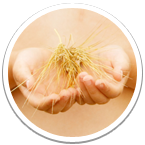Indoor Microbiome Research at THL
The Indoor Microbiome Research Team is located within the Environmental Health Unit in the Department of Health Protection. It comprises a multidisciplinary team of experts in microbiology, environmental sciences, exposure assessment, bioinformatics , epidemiology, and medical sciences working closely together on following key research topics:
- Assessment of microbial exposures in residential homes and schools
- Moisture damage and dampness in buildings, the associated health effects, and the role of microbes as well as risk perception and psychosocial factors on building occupant symptoms and disease
- Asthma and allergy protective potential of indoor microbial exposure
- Clarifying associations between environmental exposures, human microbiota and allergies
This team is one of the worldwide leading groups in research on indoor microbial exposures and builds on decades of experience in studies characterizing indoor microbial exposures and their role in health and disease. The group has extensive experience in the design and implementation of epidemiological studies on health effects of indoor exposures, in leadership of national and international project consortia, and has a strong track record in scientific publication in these research areas.
Supported by a highly experienced and specialized microbiology laboratory, the research team covers the entire range from study design, field work coordination and implementation, environmental sampling and sample processing, as well as their microbial analyses, to statistical analyses and reporting of a research project. At current, the microbiology lab is focusing on DNA-based methods for microbial exposure assessment, including quantitative PCR (qPCR) and next generation sequencing (NGS) approaches. Bioinformatics expertise in analysis of next generation sequencing data derived from environmental and human microbiome samples facilitates statistical analyses of NGS data.
In addition, the microbiology laboratory is an accredited reference laboratory for cultivation based analyses of fungi and bacteria from indoor samples, which is also offered as a paid service.
Read more: Microbiological analysis
Senior research team members
Anne Hyvärinen, Research Professor, is the administrative leader of the Unit and has long track record in the coordination of national and international research projects. She has published extensively in the peer-reviewed scientific literature, with a strong focus on research relating to moisture damage and dampness. She is a nationally and internationally renowned expert in indoor dampness and mould issues.
Juha Pekkanen is an awarded epidemiologist with over 400 original publications in peer-reviewed journals, recognized as among the global leaders in environmental determinants of asthma and allergies. He has extensive experience on international working groups, birth cohort studies and more than 20 EU funded international studies.
Martin Täubel, Adjunct Professor, Pirkka Kirjavainen, Adjunct Professor, and Anne Karvonen, Adjunct Professor, are some of the postdoctoral researchers in the Indoor Microbiome team, contributing expertise in building microbiology, exposure assessment, the implementation of field studies including building surveys, questionnaires and environmental and clinical sample collection, as well as bioinformatics and statistical analyses of microbiome data.




